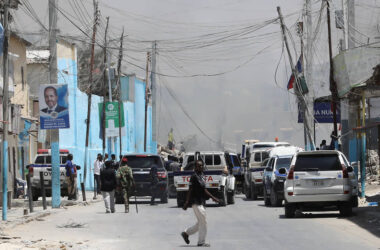Many Ukrainian refugees in France are once again facing displacement—this time due to shrinking public support and a worsening housing crisis.
While Germany and Poland continue to accommodate the majority of Ukrainians fleeing the war, France hosts a comparatively modest number—around 55,000 people under the European Union’s temporary protection scheme, far fewer than the 1.18 million in Germany.
Since March 2022, the temporary protection status has allowed Ukrainians in France to bypass the typical asylum process and access key services such as work permits, healthcare, school for children, and a monthly allowance of up to €426. Initially scheduled to end in March 2025, the scheme was recently extended until March 2026 in response to the ongoing war.
However, France is now struggling to sustain its support system as the economic downturn deepens. Housing, one of the key pillars of refugee support, has become a growing concern. At the start of the war, the French government mobilized over 19,500 emergency shelter spots for Ukrainians. By 2023, that number had dropped to 13,000, then to 9,000 in 2024, and just 4,000 in 2025, according to NGO La Cimade.
France also introduced a rental intermediation program, known as ILM, to provide private housing through NGOs. Around 30,000 homes were made available under this initiative, but the system is now faltering due to budget cuts and logistical challenges.
A government bulletin issued by Prime Minister François Bayrou in December 2024 revealed that just 11,000 ILM spots will be funded in 2025—nowhere near the original scale.
Adding to the crisis, NGOs responsible for securing and subletting the housing are under financial strain. These organisations often front the costs for accommodation and then rely on state reimbursement, which has become increasingly delayed and incomplete.
“In 2023 and 2024, these associations advanced the costs of the housing, but as the state was in financial difficultiy, so they were only reimbursed on 30 December each year, and not the full amount,” said Nadia Sollogoub, a centrist senator and head of the Senate’s France-Ukraine friendship group.
“I fear that some organisations will stop taking care of the Ukrainians because of this. The fact that the state takes a long time to pay them back puts them in great financial struggle and cash flow problems.”
The uncertainty is deeply affecting the refugee community. Aid groups report growing anxiety among Ukrainians as they face unclear prospects.
“The refugees are very worried because support has run out of steam, and we’re in a major financial crisis in France, so they don’t really know what’s going to happen. It used to be very controlled, but now we’ve really reached the end of the system,” said Sollogoub.
Some families are already experiencing the consequences. In autumn 2024, NGOs raised the alarm after several families in eastern France were issued eviction notices from ILM housing. While media coverage and advocacy efforts led to a reversal of the expulsions, the episode has left a lasting sense of insecurity.
Violeta Moskalu, who leads a French-Ukrainian aid organization in the area, said the precedent was “deeply unsettling.”




